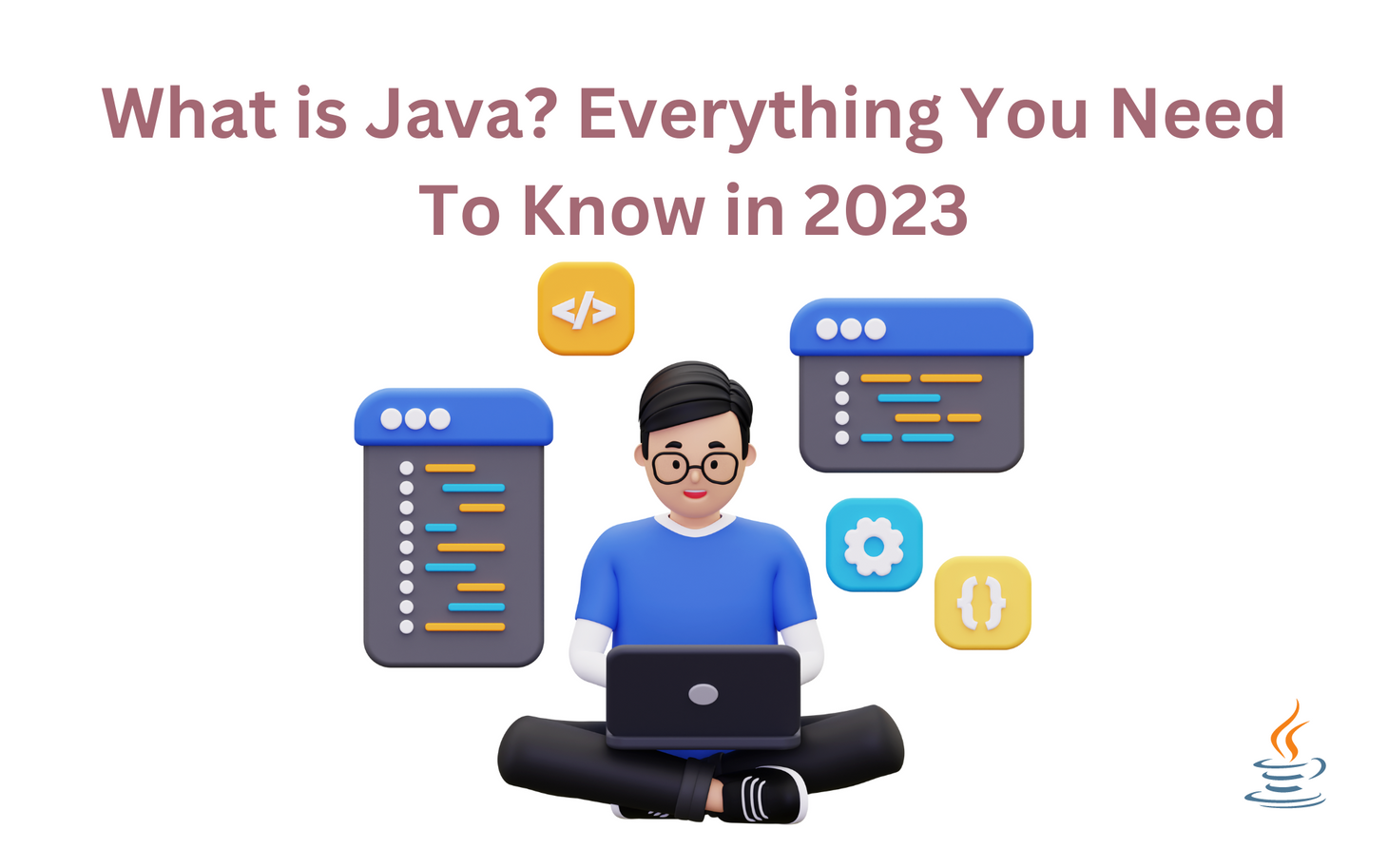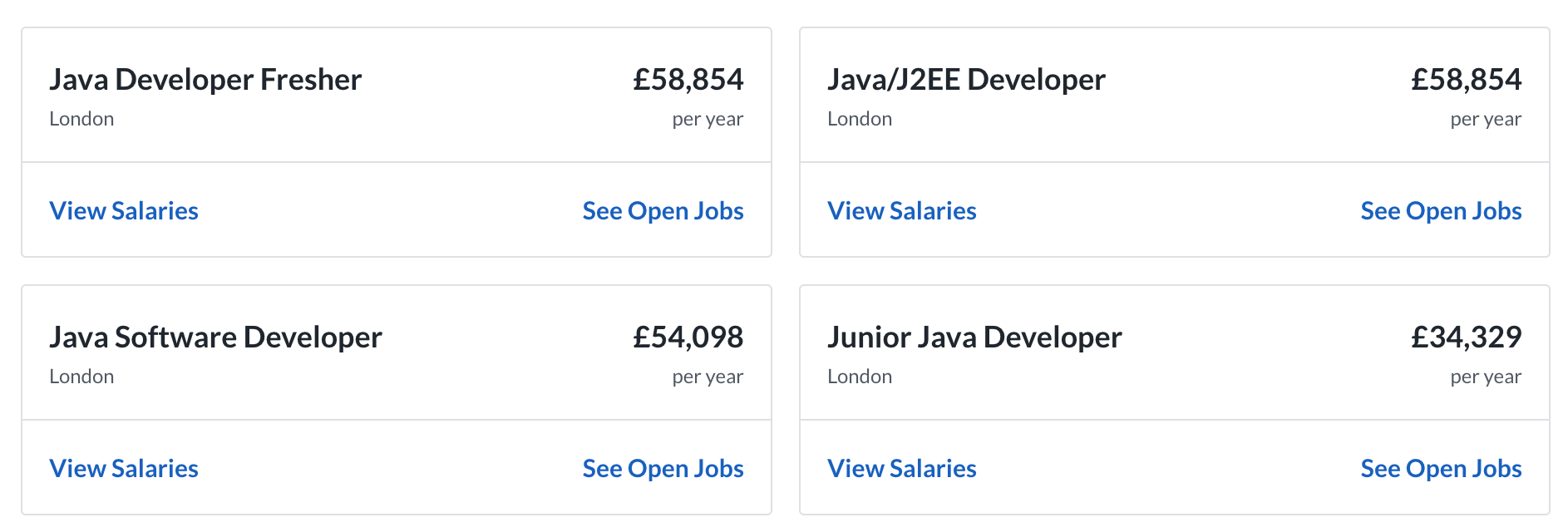What is Java? Everything You Need To Know in 2023

Table of Contents
Introduction
Java is a popular programming language that is used to develop a wide range of software applications, from web applications and mobile apps to desktop applications and games.
Java was first introduced in 1995 by Sun Microsystems (now owned by Oracle Corporation) and has since become one of the most widely used programming languages in the world.
Why Java?
Netflix moved their entire backend to Java Microservices and open-sourced some of their work in the Spring community.
Java is an object-oriented programming language, which means that it is based on the concept of objects. Objects are instances of classes, which are blueprints for creating objects. In Java, a program is made up of one or more classes, each of which can contain one or more methods. Methods are blocks of code that perform specific tasks, such as manipulating data or performing calculations.
One of the key features of Java is its platform independence. This means that Java programs can run on any platform that supports the Java Virtual Machine (JVM), which is a software layer that allows Java programs to run on different operating systems without any modification.
Java is also known for its robustness, security, and scalability. It has a large standard library that provides a wide range of pre-built tools and functionalities that can be used to build complex applications more quickly and easily. Additionally, Java's garbage collection feature helps manage memory allocation and deallocation, which can reduce the risk of memory leaks and other memory-related issues.
In 2023, Java is expected to continue to be a popular programming language for developing a wide range of software applications and mastering Java will be an important skill for software developers and programmers.
Who owns? Is it open source?
Java is not completely open-source, but it has open-source components. The OpenJDK (Java Development Kit) is an open-source implementation of the Java SE (Standard Edition) platform, which is the most widely used version of Java.
GitHub reference - OpenJDK.
In addition to OpenJDK, there are other open-source projects that use Java, such as Apache Maven, Apache Tomcat, and Spring Framework. These projects are licensed under various open-source licenses, such as the Apache License, which allows for commercial use and distribution of the software.
What are the latest release versions?
JDK version starts from JDK 1.0 till Java SE 21.
Developers need to care about the LTS(Long term support) versions supported by Oracle. If you run into an issue using an LTS version, Oracle provides support and fixes the bugs in future incremental releases.
The following listed are the LTS versions and support period.
| LTS Version | Release Date | Extended support until |
|---|---|---|
| Java SE 8 | 18th March 2014 | December 2030 for Oracle, November 2026 for Red Hat |
| Java SE 11 | 25th September 2018 | September 2026 for Oracle, September 2026 for Azul, October 2024 for Red Hat |
| Java SE 17 | 14th September 2021 | September 2029 or later for Oracle, September 2029 for Azul, October 2027 for Red Hat |
| Java SE 21 | September 2023 | September 2031 for Oracle |
5 reasons why you should consider Java
Here are five reasons why Java is a great choice for developers:
- Popularity: Java is one of the most popular programming languages in the world, with a large and active community of developers. This means that there are plenty of resources available for learning and using Java, as well as opportunities to collaborate and share knowledge with other developers.
- Versatility: Java is a versatile programming language that can be used for a wide range of applications, from web development to mobile app development, desktop applications, and even game development. This makes it a useful language for developers who want to work on a variety of projects and platforms.
- Robustness: Java is known for its robustness and stability, which is partly due to its automatic memory management system and strong type checking. This makes it less prone to bugs and errors, and easier to maintain and scale as applications grow.
- Security: Java is designed with security in mind, and includes features such as a security manager and signed code verification to help protect against security threats such as viruses and malware.
- Job Opportunities: Due to its popularity and versatility, there is a high demand for developers with Java skills. Learning Java can open up many job opportunities in a variety of industries, from software development to finance, healthcare, and more.
Benefits
Learning Java can be beneficiary if you planning on following career aspirations.
- Java developer, and Kotlin developer.
- Full stack developer.
- Web developer.
- AI and deep learning with the Tensor flow.
- Mobile app developer.
- Enterprise application developer.
- Desktop app developer.
- Tablet apps.
- Games
- VR and AR gaming.
Number of job postings(last 3 weeks)
According to LinkedIn, Job postings available in the last 3 weeks of 2023 are shown in figures.
There's a huge demand for Java developers and it is growing fast-paced.


Salaries
Average Java developer salaries for Junior engineers range from $109,534 to $164,000 according to Indeed.

The salaries in the UK vary a bit but are close enough according to Glassdoor.

Pros and Cons
Here are some of the pros and cons of using Java:
PROS:
- Platform Independence
- Large Standard Library
- Security
- Object-Oriented Programming
- Community Support
CONS:
- The learning curve is more.
- Learning Java is just the starting step, you need to learn Spring framework to get a well-paying job in US/UK.
Conclusion
In conclusion, Java is a widely used and popular programming language known for its platform independence, large standard library, and security features. It is used for a wide range of applications, from web development to mobile app development, desktop applications, and games.
Java benefits make it a valuable language for developers to learn and use in 2023 and beyond.
With evergrowing and huge community backing. This is one of the most lovable languages by developers.
Gopi Gorantala Newsletter
Join the newsletter to receive the latest updates in your inbox.
